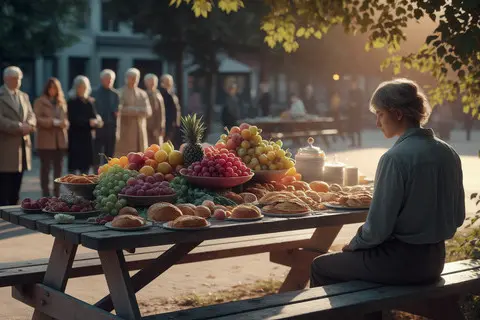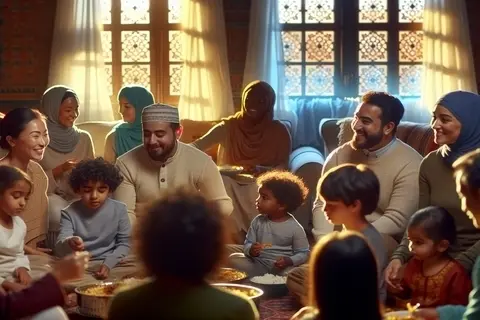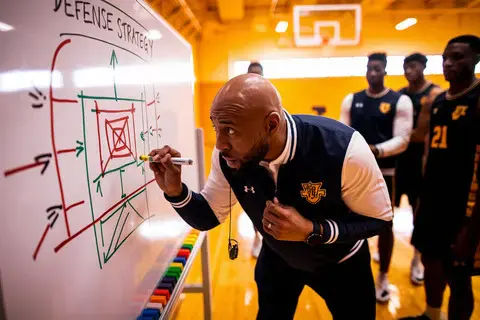It's Not All About You: Seeing Beyond Yourself
Discover the power of selflessness with 'It's Not All About You: Seeing Beyond Yourself.' Learn how to broaden your perspective and enhance your relationships.

It's not all about you means that life and choices often go beyond just your own needs or wants. We live and work in communities, so your actions or words can affect others' days or mindsets. Recalling a story from Marrakech, I realized how little things—saying hello to a stranger in a crowded street or offering some mint tea—established a congenial mood for the entire gang. Not just friends and family, but strangers, too; they need help or a kind word. Those little things do go a long way. Observing others' needs does not diminish your own. It simply means you derive greater joy by observing and engaging with someone else's interests. Next, observe how this concept affects daily habits and intimacy.
" Turning your gaze outward invites you into richer connections, cultivating trust and insight in all aspects of life. "
Key Takeaways
- It's not all about you — fixating on yourself can become a self-perpetuating cycle of anxiety and restrict your capacity to relate with others, making you feel alone.
- Turning your gaze outward invites you into richer connections, cultivating trust and insight in all aspects of life.
- When you give to others—whether it's listening, support, or simply kindness—you often receive growth and a renewed sense of purpose in return.
- None of this can be done in isolation, which is why compassion can be so vital to creative work.
- Little shifts at home, at work, or in your community can ignite a domino effect, catalyzing change further than you might anticipate.
- 'It's not all about you' helps you live a life that makes those around you happy while also making your own life truly rewarding.
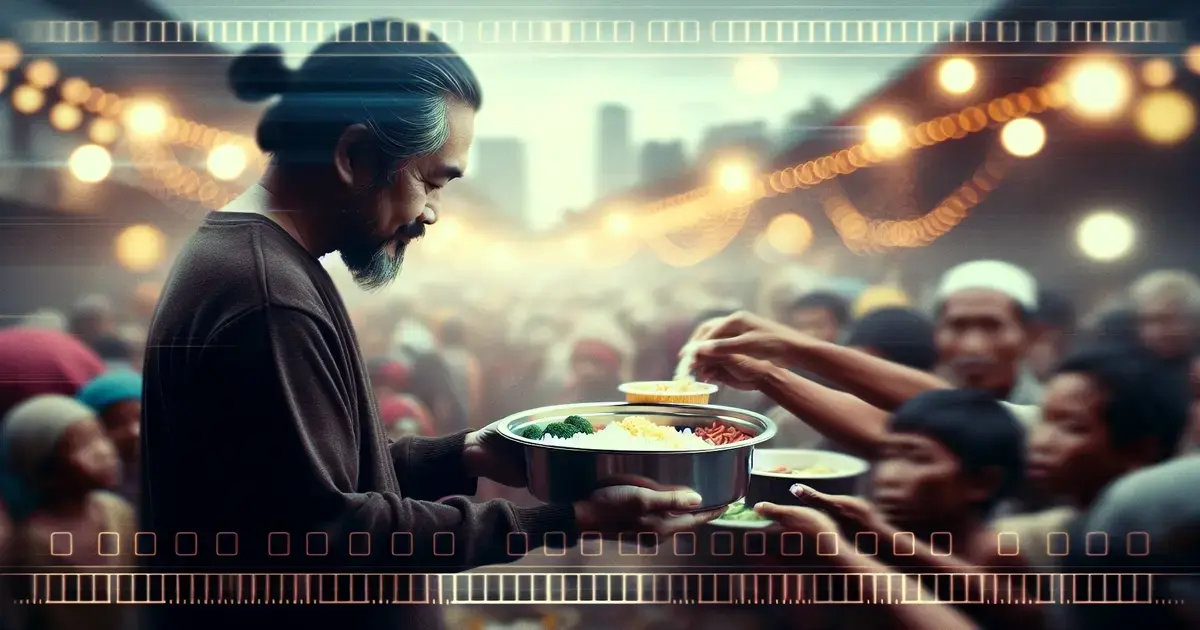
The Self-Focus Trap
Self-focus can make us big, but when it's turned inward too much, it constructs walls instead of bridges. This trap, unfortunately, often manifests as the egocentric behavior of a child, gradually leading to mindsets that narrow our worldview and inhibit emotional communion, thereby limiting our understanding of others.
The Echo Chamber
When we focus on ourselves, we can hear nothing but our thoughts. It's cozy, but it's stunted. Picture someone who devours all the new self-help books, attends every workshop, and yet never truly moves forward. They gather counsel but deploy it as armor, not a lever.
The self-serving bias encourages us to interpret our victories as validation of our talent but to fault bad luck or someone else for our defeats. At work, we'll claim credit for a project's success and point fingers when it flops. This bias lurks everywhere—in teams, at home, in sports, or even when making purchasing decisions.
The Anxiety Loop
Overthinking, of course, begets worry. Others turn to self-help repeatedly instead of seeking help from friends or addressing problems directly. They continue to think, 'When I'm ready, I'll attempt,' but that day never arrives.
This attitude fosters all-or-nothing thinking. They think if they can't give 100%, it's not worth beginning. They wait, after all, for the ideal day that doesn't ever arrive. Research reveals that both our thoughts and feelings feed this loop, making it difficult to escape.
The Connection Void
When we're too self-absorbed, we lose the present. Life is here, not in the dream of 'someday.' Chasing endless advancement, we often overlook the simple pleasures—an honest conversation with a friend, a contemplative stroll, or a lunch with a loved one.
Small steps, not giant leaps, matter. Making good use of these short bits of time is often superior to waiting for a significant opportunity to work on ourselves. Rest is in the way, not a crash. By knowing when to slow down, we can continue moving without burning out.
Why Look Beyond Yourself?
Looking beyond yourself is not merely a feel-good concept; it's elementary to being human and living well with others. Egocentrism, much like the behavior of an egocentric child, can occur at any age, leading to feelings of isolation or disconnection. Prioritizing others, driven by motives of love and emotional communion, benefits both you and them.
Deeper Connections
When you look beyond yourself, you begin to develop authentic connections with others, fostering emotional communion. You show up for friends, family, and even strangers, which can be a source of genuine gratitude. It could mean pausing to listen when someone else is hurting or lending a hand, even when you're busy. A friend of mine said he felt anonymous at the office until a colleague observed he was drowning and rescued him with a project. That little act transformed their entire relationship. Assisting others, however minor, can spark a connection that spreads goodness. These moments establish trust and respect, which endure far longer than a one-time favor.
Greater Resilience
Those who look beyond themselves tend to rebound more quickly after a blow, as they often experience a strong sense of community. When you're part of a group, you're not alone when things go wrong. If a neighbor loses a job, the entire block can assist with meals or leads, showcasing social behavior. This shared sense of purpose makes it easier to persevere. There's strength in numbers, and when you help others, it shifts your focus from your troubles, making them seem less heavy and fostering a sense of emotional communion.
Lasting Purpose
Meaning expands when you seek to contribute beyond yourself, reflecting an intuitive sense of purpose. Paul, a spiritual leader, emphasized that we should 'do nothing from selfish ambition or conceit but in humility count others more significant than yourselves." Most religions share this sentiment, urging us to look out for one another. Maslow's concept of self-actualization tells us we require significance above and beyond the essentials, while self-transcendence — seeking meaning beyond yourself — is where enduring satisfaction and emotional communion reside.
Expanded Perspective
It's easy to see nothing but your perspective. Putting yourself in another person's position requires effort. It's a journey of a lifetime, but the prize is a far broader perspective on the world. It reduces sectarianism, jingoism, and the notion that one's tribe is invariably correct. You begin to realize just how large the world is and how much we all share in common.
It prevents you from succumbing to pitfalls such as megalomanias or narcissistic armor. They keep us trapped inside ourselves, too closed to recognize our suffering or the suffering of those around us.
Genuine Happiness
Assisting others and contributing to a larger cause provides a different kind of enduring happiness. It's not the immediate buzz you experience by acquiring something new. Instead, it's the profound peace that arises from feeling you belong and matter.
Tiny gestures — sharing a coffee, simply being there — can boost your spirits for hours. They can relieve the pain of an over-inflated ego, as sagacious mentors have counseled for centuries.

The Selfless Paradox
It may seem easy to be selfless and put others first, but true selflessness is far more complex. Fundamentally, the selfless paradox is a primer on how generosity, boundaries, and self-care all blend. This puzzle is at the core of what social ethics and utilitarianism call 'enlightened self-interest' — the idea that helping others can also benefit you. Although selfishness and hubris are often perceived as impediments to genuine connection, selflessness—when accomplished judiciously—can benefit all, fostering emotional communion and a deeper understanding of our motives.
Gaining by Giving
Being selfless can be savvy, not merely noble. Enlightened self-interest emerges in our daily lives when others give without seeking immediate reciprocation yet nevertheless gain trust, admiration, or a sense of meaning. Take collective projects at work. When one player rises to assist a groggy teammate, the entire team tends to perform better. This creates a reservoir of goodwill, so others are more inclined to come to your aid as well when you need help.
Still, selflessness is not about denying yourself. The phrase 'sometimes you have to be selfish to be selfless 'applies. If you attempt to give without boundaries, you'll either burn out or become bitter in relationships, which can backfire. If one partner consistently folds but never advocates for their desires, it can lead to resentment and disconnection.
Leading by Serving
Leadership is about service. Leaders who serve the team's needs, not their ego, cultivate loyalty and achieve superior outcomes. Contrast this with hubris, which is excessive pride. Servant leaders teach by example and provide clear boundaries, demonstrating that by saying 'no' from time to time, they are caring for both themselves and the community.
Other times, it's a sign of weakness to seek assistance. Reaching out can keep you strong and connected. It's a myth that you impose upon others by requesting assistance. Many people appreciated having the opportunity to assist.
Finding by Losing
Dismiss nothing, and you will grow. Dunning-Kruger tells us that hubris can make us deaf to our actual boundaries. Selfless acts, even little ones—like listening without rehearsing your response—can deepen trust and strengthen relationships.
Fictional narrative makes this paradox concrete. In stories like Naruto, characters discover true power in connection, not isolation. Their paths demonstrate that lifting others is not the same as losing yourself.
How to Cultivate Empathy
Empathy is the ability to perceive and relate to the emotions of others, often reflecting an intuitive sense of understanding. It encompasses a wide range of human endeavors, from science to philosophy and everyday life. Empathy is a skill, not an innate trait, and can be enhanced through behavioral therapy, beginning with micro-practices and expanding with diligence.
Active Listening
When you're present with someone, listen with your entire attention. Listening, which means NOT thinking about how you're going to respond while they're talking. Instead, you tune into what that other person is communicating–verbally and nonverbally. In group settings, such as the Abilene paradox, failing to listen truly can lead to poor decisions. They'll say what they think others want to hear, even if no one does. Being an active listener prevents this and elicits candid perspectives.
Please resist the urge to jump in with advice or fix it immediately. Allow others to express their tale. When a friend shares a horrible day on the job, reflect their emotions to them. Say, 'That sounds hard,' instead of, 'This is what I'd do. This small change makes people feel appreciated. For parents, pointing out and discussing instances of empathy, or the absence thereof, in books or on television with children can help them learn to listen and care. Over time, being interested and posing soft, open-ended queries, such as "What did you learn today?" helps develop this ability in both adults and children.
Perspective Taking
Specifically, perspective-taking — putting yourself in another person's shoes. It says, 'How would I feel if I were them?' This disrupts the cycle of illusory superiority—believing our perspective to be the most supreme or relevant. Research reveals this bias is culturally formed and can inhibit empathy. If we actively strive to put ourselves in someone else's shoes, we begin to transcend our own biases.
Think baby steps. If you hear of a kid at school who's having a rough time, wonder to yourself what their days feel like. Bouncing these stories around the dinner table gets us all stretching our empathy muscles. With practice, you'll feel you make fewer snap judgments and treat others with more care.
Shared Experiences
There's nothing like a shared experience to teach empathy. When individuals collaborate or struggle collectively, they discover how others experience. Many traditions and religions honor generosity by donating time or resources to serve others. This spirit of generosity, backed by science and associated with oxytocin, a "feel good" hormone, connects people.
When you join a new team, travel to new places, or hear a friend's story for the first time, you view the world through new lenses. Such moments remind us that life is not all about us. By caring, by being open and inquiring, we make room for others' narratives. Over time, this habit can make us more generous, more encouraging, and less susceptible to the "better-than-average" effect. We create a more compassionate planet, one day at a time.
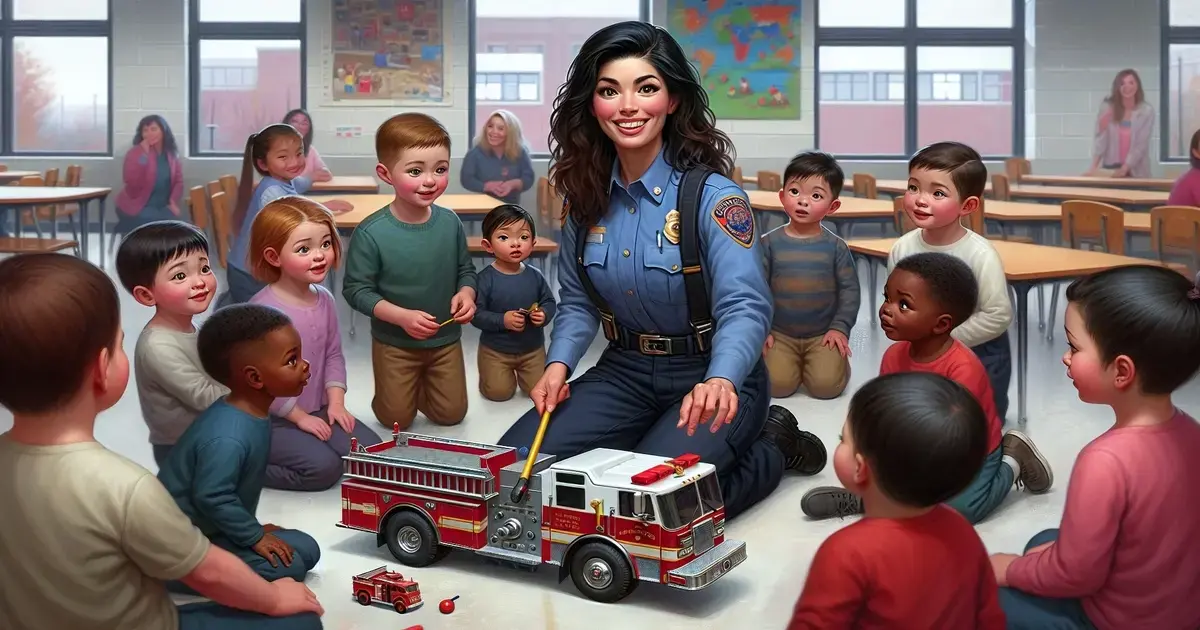
Beyond Yourself in Practice
Beyond yourself means releasing the notion that it's all about your brain and heart. This perspective shift involves understanding the lives, emotions, and needs of others. Philosophers term solipsism the belief that one's mind is all that exists. In everyday life, this can manifest as egotism or even narcissism, with individuals turning too much inward. Sometimes, these habits are human—sculpted by cognitive biases or cultural conditioning. You can engage in small acts of kindness every day to embrace humility and nurture the world beyond your mind.
At Home
A few tweaks at home can go a long way. Donating your time or space—be it a dinner party or a book swap—creates deeper connections. Even trivial things count. Sometimes, a kind word or doing chores without being asked can turn everyone's mood around.
Over time, these habits become second nature. If you live with family or roommates, be mindful of their needs. Hear 'em at dinner or inquire about their day. Give, if possible, without praise. That's not being a hero. It's making a difference where you can when you can.
At Work
Work is one of those places where the ego likes to sneak in. Rather than constantly promoting your own, offer credit to others. Listen to your coworkers and assist them wherever possible, even beyond your job description.
You don't need to make significant sacrifices. Little things—passing along a resource, helping someone learn something, or simply inquiring, 'What can I do to assist?'—can transform the vibe of a team. Leadership isn't about being in charge. It's about creating room for others to glow.
There's nothing like perspective to provide clarity–sometimes stepping back and reflecting on your role helps. Whether it's a work journal or short meditations, cultivating awareness enables you to notice where you can give more.
In Community
Going beyond yourself appears in the tiny, daily actions. It could be as straightforward as participating in a local clean-up, volunteering your talents at a community class, or contributing to a worthy cause.
Generosity is not just contributing money. Giving time and kindness contributes. If you're unsure where to start, look for your local groups or online forums that welcome newcomers.
Self-development occurs when you relate to, contribute to, and absorb from others. Spiritual traditions worldwide implore us to love our neighbors. These are ageless, border-crossing lessons.
Related Tips
The Outward Ripple Effect
Remember a pebble cast into a lake. The ripples emanating from the center illustrate how even the smallest gesture can have a broad impact. The outward ripple effect in life operates in this way. Every decision, remark or even eye contact can impact more individuals than we initially realize. When someone experiences a significant shift—such as a job loss or a grim health report—their loved ones, friends, and colleagues sense it. Sometimes, the first ripple is the mightiest. When a parent loses work, the entire family's mood and plans change. Neighbors can feel the shift, too.
Treating others as we would like to be treated is not simply a rule of etiquette. It's an essential concept in ethics, jurisprudence, and religion. This principle is evident everywhere, from the Sermon on the Mount to everyday life hacks. It's not the golden mean or ratio; it has nothing to do with math or hidden web archives. It's about the outward ripple effect. When we aid another, it can create a ripple effect. If we act with cold self-interest or a holier-than-thou attitude, it can radiate hurt instead.
It manifests in the outward ripple effect of how life goals and values imprint those around them. A person who works for a just cause or volunteers an hour can change the attitude of an entire organization or neighborhood. It's a double-edged sword. The curse of knowledge, for instance, can make us forget what it's like not to know something. We assume that other people view things the way we do and overlook their needs. Or, in our arrogance, we might alienate folks by assuming we know best.
The lesson is straightforward. Our decisions don't end with us. A kind word, a little help, or even a cutting remark can create waves that extend far. The ripple effect keeps us honest about how much we value others.

Conclusion
Those who see beyond themselves tend to be happier, more connected, and more fulfilled. Life shines brightest when people reach out for others—whether it's sharing a meal with a neighbor or listening to a friend in low spirits. Giving doesn't diminish your value. It's not all about you. It builds trust and strengthens the entire community. Tiny acts, such as inquiring about someone's day or volunteering at a community hangout, can ignite massive transformation. Things light up when people watch for one another. To attempt a new path, extend a hand, aid a soul, or tell your tale. Notice what shifts. Every action matters, and every individual can leave a legacy.
